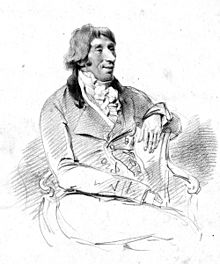
Don Giovanni is an opera in two acts with music by Wolfgang Amadeus Mozart to an Italian libretto by Lorenzo Da Ponte. Its subject is a centuries-old Spanish legend about a libertine as told by playwright Tirso de Molina in his 1630 play El burlador de Sevilla y convidado de piedra. It is a dramma giocoso blending comedy, melodrama and supernatural elements. It was premiered by the Prague Italian opera at the National Theater, now called the Estates Theatre, on 29 October 1787. Don Giovanni is regarded as one of the greatest operas of all time and has proved a fruitful subject for commentary in its own right; critic Fiona Maddocks has described it as one of Mozart's "trio of masterpieces with librettos by Da Ponte".

La clemenza di Tito, K. 621, is an opera seria in two acts composed by Wolfgang Amadeus Mozart to an Italian libretto by Caterino Mazzolà, after Pietro Metastasio. Mozart began the work while he was finishing Die Zauberflöte, the last of his principal operas. La clemenza di Tito premiered on 6 September 1791 at the Estates Theatre in Prague.
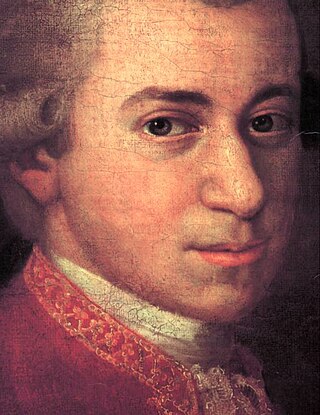
Zaide is an unfinished German-language opera, K. 344, written by Wolfgang Amadeus Mozart in 1780. Emperor Joseph II, in 1778, was in the process of setting up an opera company for the purpose of performing German opera. One condition required of the composer to join this company was that he should write a comic opera. At Salzburg in 1779 Mozart began work on a new opera. It contains spoken dialogue, which also classifies it as a Singspiel. Only the arias and ensembles from the first two acts were composed. Missing are an overture and third act.
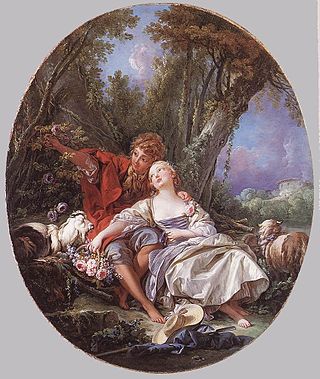
Bastien und Bastienne, K. 50 is a one-act singspiel, a comic opera, by Wolfgang Amadeus Mozart.

Lorenzo Da Ponte was a Venetian, later American, opera librettist, poet and Roman Catholic priest. He wrote the libretti for 28 operas by 11 composers, including three of Mozart's most celebrated operas: The Marriage of Figaro (1786), Don Giovanni (1787), and Così fan tutte (1790).

The Symphony No. 32 in G major, K. 318, was written by Wolfgang Amadeus Mozart in 1779, after his return from Paris.
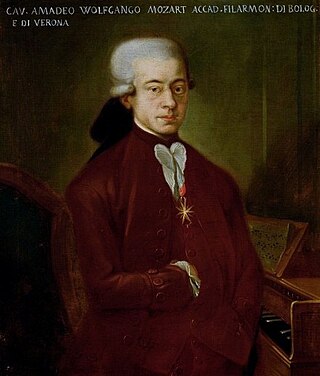
La finta giardiniera, K. 196, is an Italian-language opera by Wolfgang Amadeus Mozart. Mozart wrote it in Munich in January 1775 when he was 18 years old and it received its first performance on 13 January at the Salvator Theater in Munich. There is debate over the authorship of the libretto, written for Anfossi's opera the year before. It is often ascribed to Calzabigi, but some musicologists now attribute it to Giuseppe Petrosellini, though again it is questioned whether it is in the latter's style.

Axur, re d'Ormus is an operatic dramma tragicomico in five acts by Antonio Salieri. The libretto was by Lorenzo Da Ponte. Axur is the Italian version of Salieri's 1787 French-language work Tarare which had a libretto by Beaumarchais.

Günther von Schwarzburg is a Singspiel in three acts by Ignaz Holzbauer set to a German libretto by Anton Klein. Loosely based on events in the life of the 14th-century German king, Günther von Schwarzburg, the opera premiered on 5 January 1777 at the Hoftheater in the Mannheim Palace.

Brigida Banti, best known by her husband's surname and her stage-name, as Brigida Banti, was an Italian soprano.
La pastorella nobile is an commedia per musica in two acts by Pietro Alessandro Guglielmi. The Italian libretto was by Francesco Saverio Zini.

Teresa Saporiti was an Italian operatic soprano and composer most remembered today for creating the role of Donna Anna in Mozart's opera Don Giovanni. She was born in Milan and died there at the age of 106. In her later years, she was often referred to by her married name, Teresa Saporiti-Codecasa.

Armida is an opera in three acts by Josef Mysliveček set to a libretto by Giovanni Ambrogio Migliavacca based on an earlier libretto by Philippe Quinault. It is one of many operas set at the time of the Crusades that is based on characters and incidents from Torquato Tasso's epic poem La Gerusalemme liberata. This opera belong to the serious type in Italian language referred to as opera seria. It incorporates many elements from the operatic "reform" movement of the 1770s, including short vocal numbers and short choruses incorporated into the fabric of the drama and lavish use of accompanied recitative.
Luise Willer (1888–1970) was a German operatic contralto. She made her professional opera debut in 1910 as Annius in Wolfgang Amadeus Mozart's La clemenza di Tito. She spent most of her career performing at the Bavarian State Opera in Munich. At the Bayreuth Festival, she portrayed Brängane in Tristan und Isolde. She created roles in several world premieres during her career, including Barbara in Erich Wolfgang Korngold's Violanta (1916), Lukrezia in Hans Pfitzner's Palestrina (1917), Graben-Liese in Franz Schreker's Das Spielwerk (1920), and Herzogin in Pfitzner's Das Herz (1931) among others.
Gottardo Aldighieri was an Italian operatic baritone who had a major opera career in Italy from 1858 to 1885. He possessed a powerful and beautiful voice and appeared on the stages of most of Italy's great opera houses. He sang a broad repertoire which encompassed works by Italian, French, and German composers. His vocal range was wide, which enabled him to tackle some tenor roles during his career, although he mostly stayed within the baritone repertory. The composer Luigi Arditi devoted his famous waltz song, Il bacio, to him. He was married to the soprano Maria Spezia-Aldighieri, who also had an important opera career in Italy. He is the great grandfather of singer George Aaron.

Vincenzo Calvesi was an Italian operatic tenor and impresario. A skillful lyric tenor, he began his career performing in opera houses in Italy during the 1770s. He was active in Dresden in 1782 to 1783 and then spent most of his time performing in Vienna from 1785 to 1794. He is best remembered today for creating the role of Ferrando in the world premiere of Wolfgang Amadeus Mozart's Così fan tutte in 1790. That same year the Viennese publication Grundsätze zur Theaterkritik described him as "one of the best tenors from Italy…with a voice naturally sweet, pleasant and sonorous." He was later active in Rome as an impresario up until 1811.

Antonio Poggi was an Italian operatic tenor who had an active international career from 1827–1848. He is best remembered for creating roles in the world premieres of operas by Gaetano Donizetti and Giuseppe Verdi. He was married to soprano Erminia Frezzolini from 1841–1846.
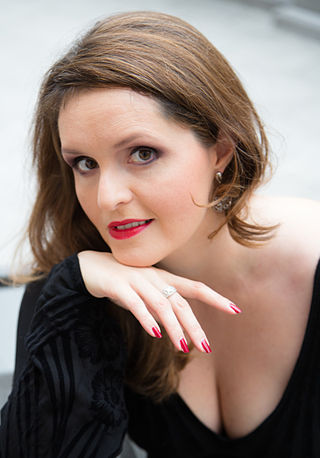
Sandra Trattnigg is an Austrian opera and concert soprano.
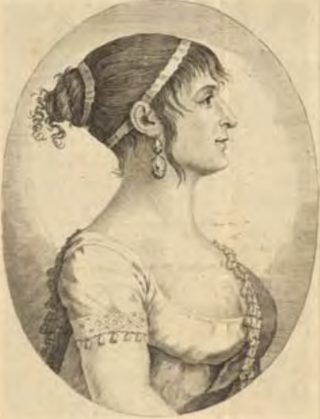
Elisabetta Gafforini was an Italian opera singer who performed leading contralto and mezzo-soprano roles, primarily in the theatres of Venice and at La Scala in Milan but also in Spain, Portugal, and other Italian cities. During the course of her 25-year career she appeared in numerous world premieres. She possessed a limpid, flexible, and resonant voice with an exceptionally wide range, and according to Stendhal was a consummate and enchanting comic actress. Gafforini was born in Milan and lived there after her definitive retirement from the stage in 1818 until her death at the age of 70.
